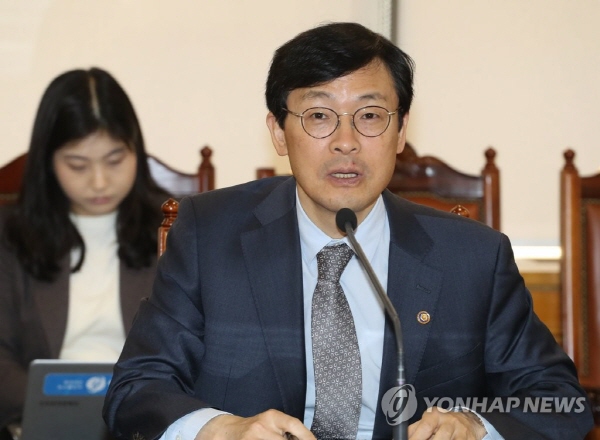South Korea said Monday it is maintaining round-the-clock tabs of financial markets and set to take necessary steps in case of volatility.
The move came four days after the leaders of North Korea and the United States ended their high-stakes nuclear summit in Hanoi with no agreements being reached.
Still, the breakdown is unlikely to have any big direct impact on South Korea's financial markets, the Ministry of Economy and Finance said after Lee Ho-seung, the first vice minister of economy and finance, met with senior officials of the central bank and other financial agencies in Seoul.

The ministry said South Korea's solid fundamentals, such as the current account surplus and foreign exchange reserves, are a key factor that can allow it to handle volatility.
South Korea's current account surplus came to US$4.82 billion in December, marking the 80th consecutive month of the balance being in the black, according to the preliminary data from the Bank of Korea.
South Korea's foreign exchange reserves hit a record high of $405.51 billion as of end-January.
South Korea -- a small, open economy -- depends heavily on exports and foreign capital investment, a situation that makes it vulnerable to external shocks.
Despite no tangible deals being reached at the summit, the credit default swap premium for South Korean foreign exchange stabilization bonds with a five-year maturity is 29 basis points -- the lowest since the 2008 global financial crisis.
The ministry said there are lingering uncertainties over trade talks between the U.S. and China, Brexit and a slowing global economy.(Yonhap)

